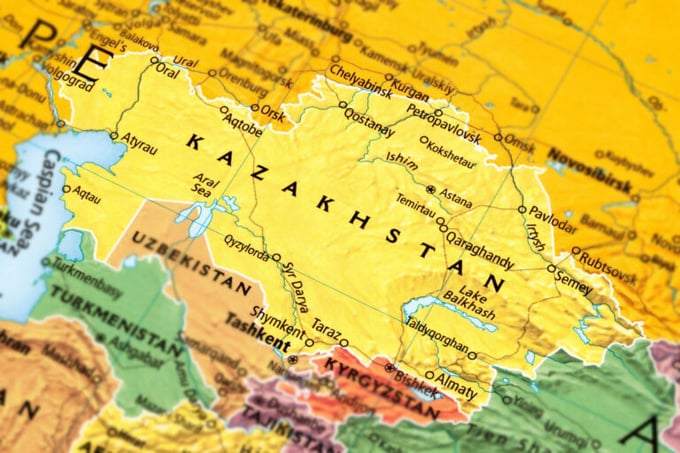June 21, 2025 | 21:34 GMT +7
June 21, 2025 | 21:34 GMT +7
Hotline: 0913.378.918
June 21, 2025 | 21:34 GMT +7
Hotline: 0913.378.918

Kazakhstan imports 7.7 million head of day-old chicks and 67.7 million hatching eggs annually to meet the demand of poultry farms. Photo: Canva.
“Representatives of Al Jazeera Agriculture informed the Kazakh side about the company’s plans to establish the production of hatching eggs in Kazakhstan. The first stage, with a preliminary cost of US$15 million, involves the import of brood hens from Europe,” Kazakh Invest, a government agency facilitating foreign investments in Kazakhstan, has revealed.
The Jordan company also plans to involve local suppliers and producers in the subsequent creation of a feed mill, Kazakh Invest said.
During a meeting in Astana, Kazakhstan’s officials promised to provide support to the future project, though they did not reveal additional details. Al Jazeera Agriculture has already visited several regions of Kazakhstan, inspecting possible sites for the construction of the farm.
Al Jazeera Agriculture is one of the Jordan poultry industry leaders, holding a license to export poultry to Saudi Arabia and the UAE. The company manufactures around 60,000 tonnes of poultry and 100 million hatching eggs per year, accounting for roughly 23% of the country’s poultry market.
Like other Central Asian countries, Kazakhstan historically primarily relied on the import of hatching eggs to meet its own demand.
Import-substitution
Kazakhstan imports 7.7 million head of day-old chicks and 67.7 million hatching eggs annually to meet the demand of poultry farms, the Kazakhstan Parliament estimated in December 2023. To overcome its dependence on imports, Kazakhstan needs to establish at least 2 breeding farms – one in the south and another in the northern part of the country, the lawmakers added.
Western sanctions against Russia have complicated the logistics of delivering some food and agricultural products to Kazakhstan from Europe. As estimated by local market players, to reach Kazakhstan customers, European goods now have to cross the borders of 4 countries, compared to only 2 in the previous years.
Growth plans
Kazakhstan is nurturing an ambitious plan to significantly increase its domestic poultry meat production to 600,000 tonnes by 2027, a vision drafted by the Kazakh Union of Poultry Farmers. In 2023, production stood at only 320,000 tonnes.
The growth in domestic production is likely to be facilitated by Russia’s ban on the transit of US poultry through its territory imposed on 24 July 2024. The US frozen broiler meat accounted for a large share of poultry used by Kazakhstan meat processors. Local poultry farmers welcomed the move of the Russian authorities, indicating that it should help them with their import-replacement push.
(Poultryworld)
/2025/06/17/3942-2-143243_548.jpg)
(VAN) Recently, in Sweden, the Secretary of the Binh Dinh Provincial Party Committee presented the Investment Registration Certificate for the 'Polyester Fabric Recycling Complex' project to SYRE Impact-AB Company.
/2025/06/12/3721-2-202745_83.jpg)
(VAN) TH made an impression at Seoul Food 2025 with its line of natural beverages, paving the way for Vietnamese food products to enter the South Korean market.

(VAN) Soc Trang's success in rice exports stems from a strategy of developing fragrant and specialty rice cultivation areas and standardizing production toward low-emission practices.
/2025/06/11/1311-5-120811_839.jpg)
(VAN) The pig farming industry is facing the challenge of comprehensive restructuring to meet requirements for quality, safety, traceability, and market expansion both domestically and for export.

(VAN) Vietnam considers participating in ALGROALBA in order to expand agricultural production, coordinate the assessment and effective exploitation potential land.
/2025/06/05/5314-1-184727_407.jpg)
(VAN) From seemingly worthless fish scales and skin, enzymes and lactic ferments can transform by-products into peptides, opening a sustainable, effective business direction and elevating Vietnamese seafood.

(VAN) TTC AgriS and IFC signed a strategic partnership to develop a sustainable agricultural value chain, aiming to achieve the Net Zero target by 2035.